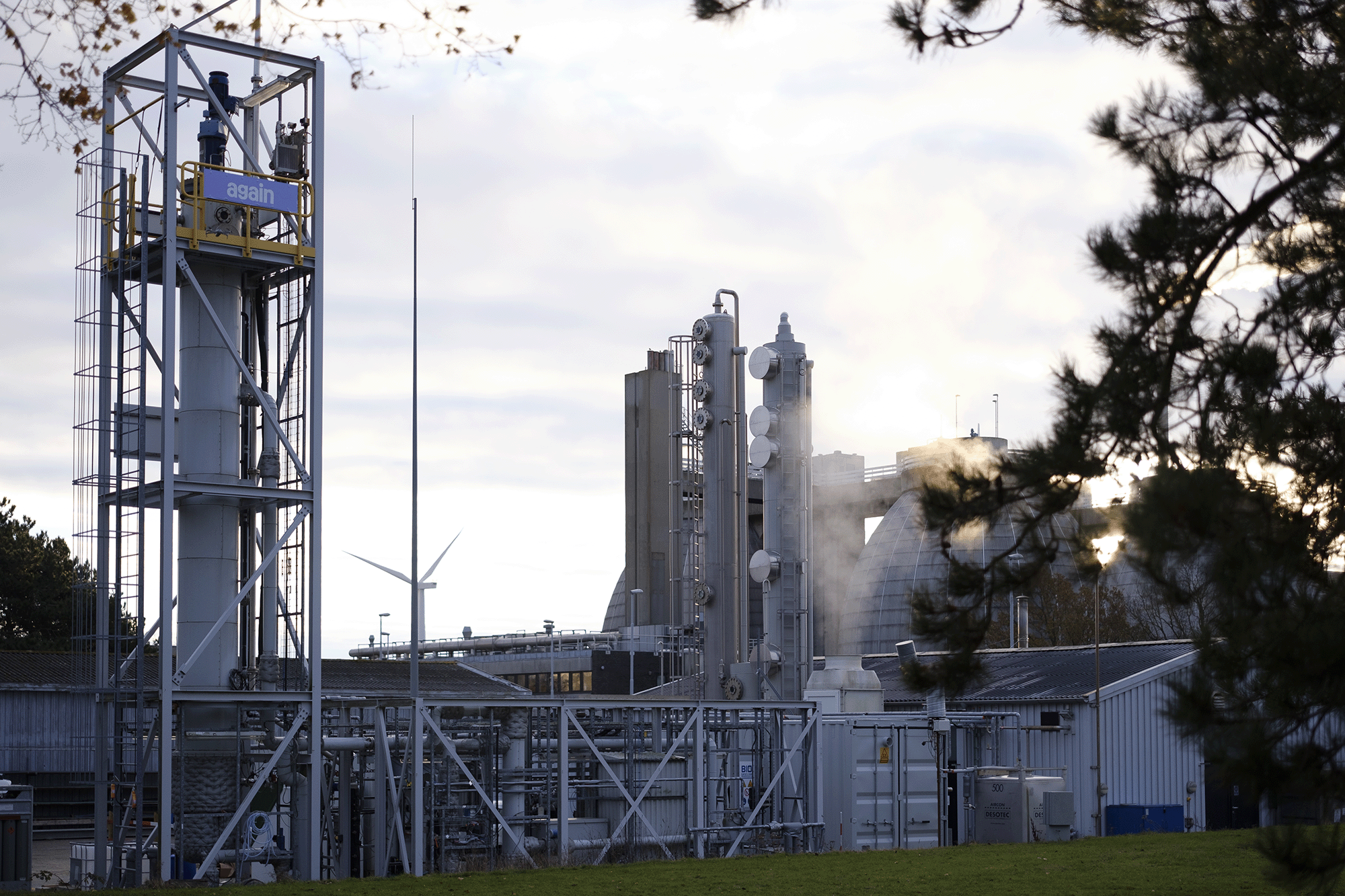At the forefront of sustainable chemical production, Again, a Danish climate tech startup is setting new standards with its innovative approach to producing green acetic acid. By converting CO2 into chemicals using natural, gas-eating bacteria, they reduce CO2 emissions by 70%, offering a glimpse into the future of industrial chemistry. To further lower their product carbon footprint, Again is targeting a transition to renewable hydrogen as the industry commercializes.
Current operational status
Again is currently operating a demonstration plant in Copenhagen, Denmark utilizing up to 1ton of CO2 a day. As a part of their further upscaling journey, Again sought a partner to visualize and communicate the benefits of their method compared to traditional chemical production.
"We had struggled with finding an LCA partner that could visualize and communicate the benefit of using waste CO2 emissions as a key feedstock. ClimatePoint helps us do that,” says Ida Kongsgaard, Again’s Commercial Lead.
Impact Insights
The recent life cycle analysis conducted by ClimatePoint highlighted the key sensitivities in the process inputs including hydrogen and remaining utilities. With the result of the LCA, Again can prioritize key workstreams for future development balancing the environmental impact with commercial and process engineering strategies.
A future built on innovation and data
For impact investing, tangible data and verified impacts are crucial. Again’s detailed environmental metrics are instrumental in communicating the value and potential of their green acetic acid to investors and potential clients, confirming the efficacy of their technology and its scalability.
"Using biology instead of chemistry, Again will be the future of chemical manufacturing. And massively reduce CO2 emissions whilst we are at it," says Ida Kongsgaard, Again’s Commercial Lead.
Again is more than just a chemical producer; they are trailblazers in sustainable industrial processes. By leveraging detailed life cycle analysis combined with novel low carbon biotechnology, they enhance their production and provide investors and clients with a clear pathway to sustainability. ClimatePoint is thrilled to bring their team this data-backed approach ensures Again remains at the cutting edge of the industry. Putting CO2 to good use.
Are you a startup looking to visualize and communicate your sustainability impact effectively? Learn more about how ClimatePoint can help you achieve your goals. Visit our service page tailored for startups, to get started!
ClimatePoint's comparable Life Cycle Assessment (LCA) adheres to ISO standards for LCAs, particularly ISO 14067:2018, which focuses on the quantification of greenhouse gases and product carbon footprint. Additionally, we incorporate Project FRAME terms, specifically for Scope 4, to account for avoided emission.

